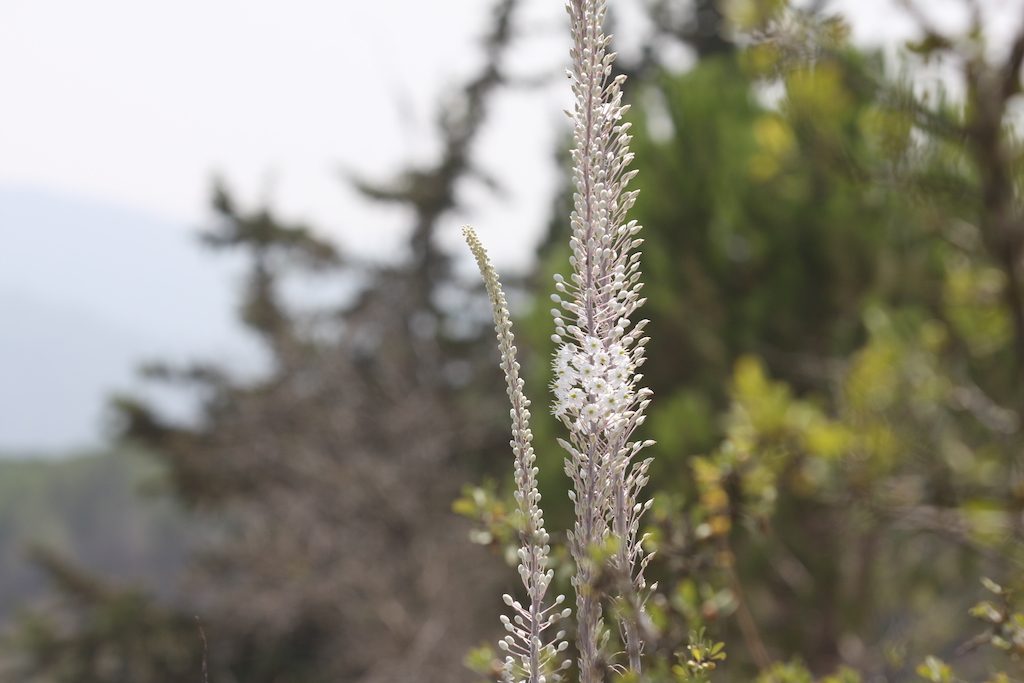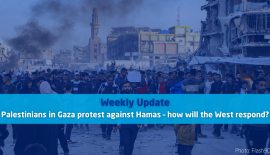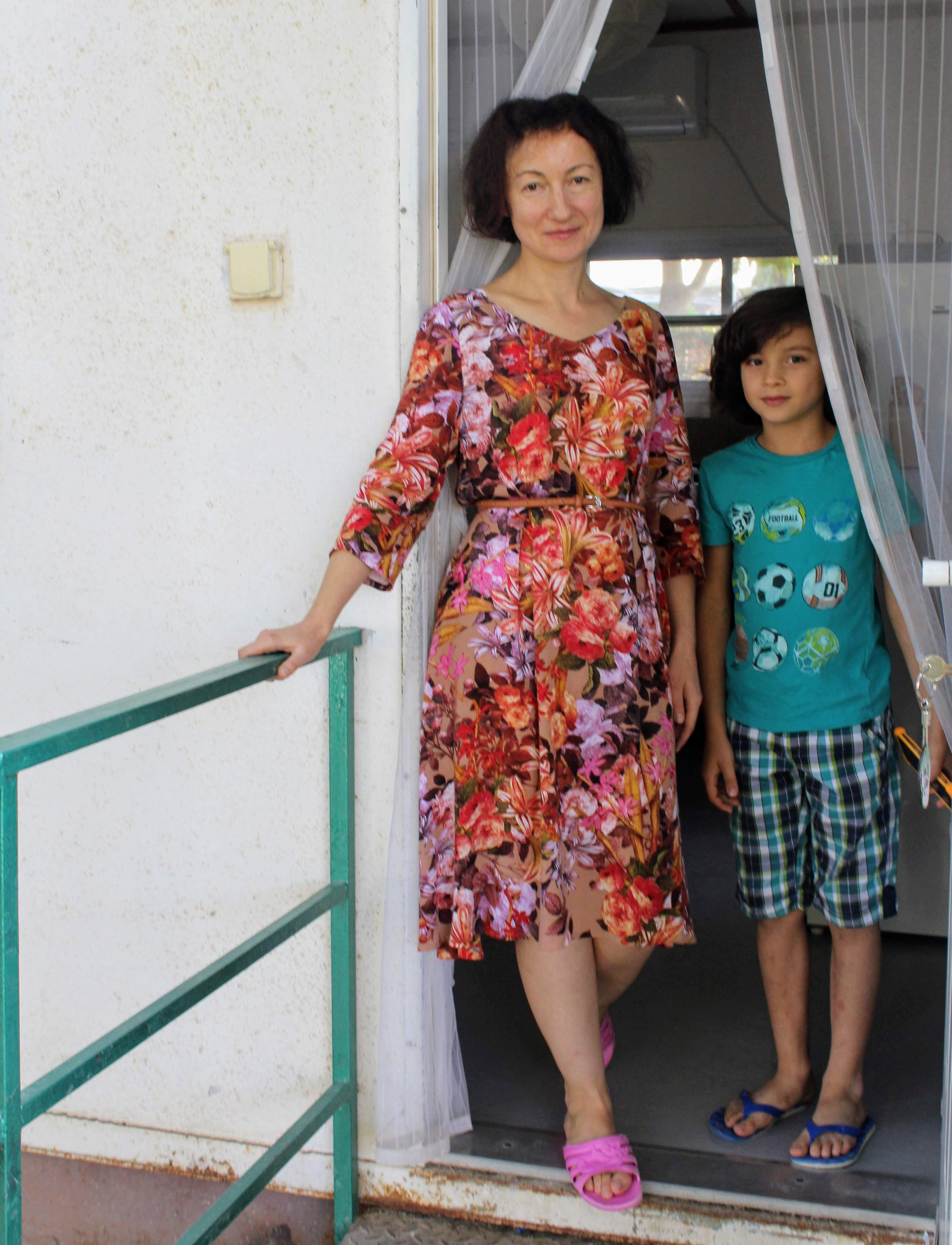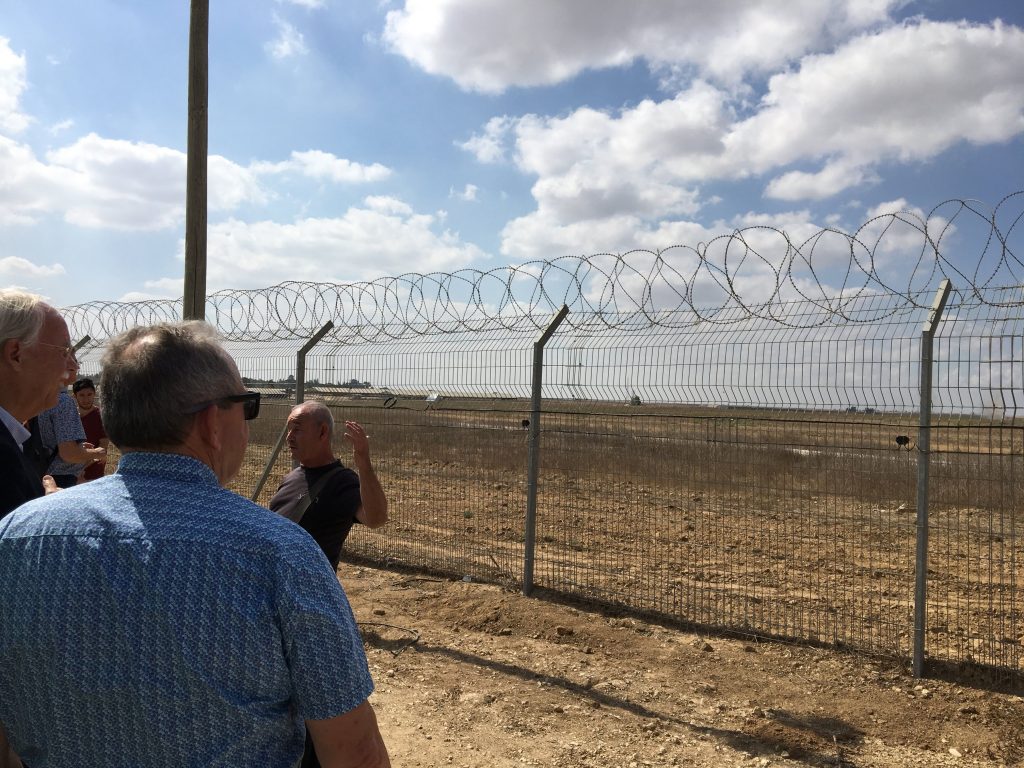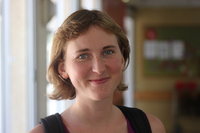Black as ashes, white as flour
Drimia is an inconspicuous plant, one just sees a stalk with gentle white or pink small flowers, nothing special – for everyone but not for Israelis. Drimia or חצב in Hebrew (read Chatzav) is a symbol of a new beginning. The first flowers of the drimia usually pop up in February and March – it’s a certain sign that spring is coming.
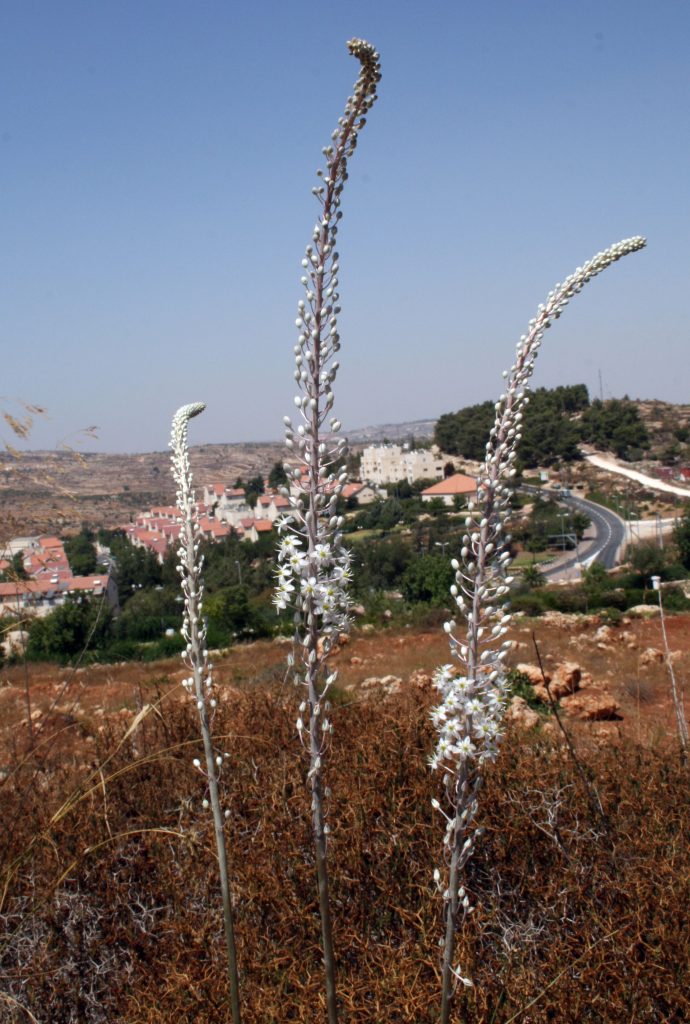
A sea squill (or drimia). August 25, 2009. In Israel the sea squill has gained an almost iconic status, and is popularly known as the “harbinger of autumn”, due to the fact that the flowers pop out all over the country at the end of the dry summer, some time before the first rain. Photo by Gershon Elinson / Flash 90.
Fire kites that fly over the border with Gaza every day, destroy the agriculture, flora and fauna of the Eshkol region. You can never know where the burning tail of the kite will land… scorched spaces instead of green fields and forests, this is what one sees while driving though Eshkol region near the Gaza strip. But the picture of the past weeks is astonishing – lonely fields black from ashes are covered with white blossoms – of many, many drimia flowers!
This summer twelve families made aliyah to Eshkol via First Home in the Homeland. Despite the security situation they chose this region for their start in Israel. The youngest newcomer’s name is Platon, he comes from Omsk, Russia, and now lives in Ein Hashlosha, three kilometres from the Gazan border. We frequently informed you in bygone months about this kibbutz. Unfortunately in Israel the situation in this kibbutz is constantly made public via the newspapers. Besides Ein Hashlosha there are two more kibbutzim in these region that welcomed newcomers in August 2018 – Tzeelm and Gvulot.
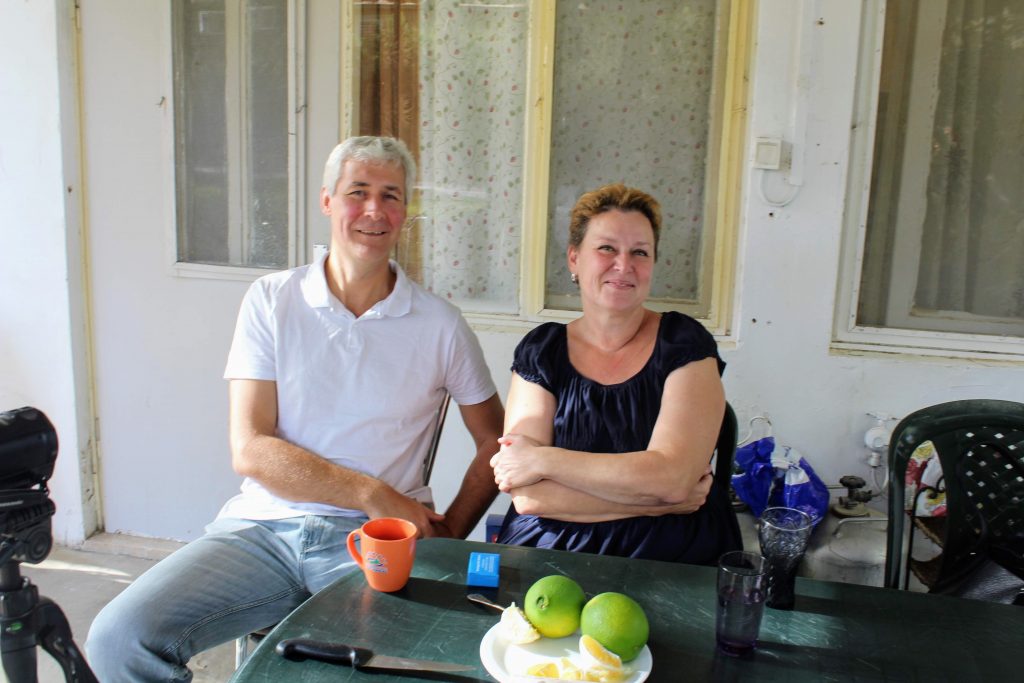
Dmitri and Aneta with their two children, Tamara 15 and Sergey 17 years old, made aliyah from Ufa to kibbutz Gvulot.
Every family, even if they arrived in the middle of the night, were given a hearty welcome by a volunteer, with a greeting card, in a clean and cozy kibbutz apartment, with the basic requisites in the fridge of their new home. Families that came from Ukraine, got a telephone call while they were still in theirs places of origin, followed by a visit of the team of Christians for Israel so that they felt supported in their decision of making aliyah.
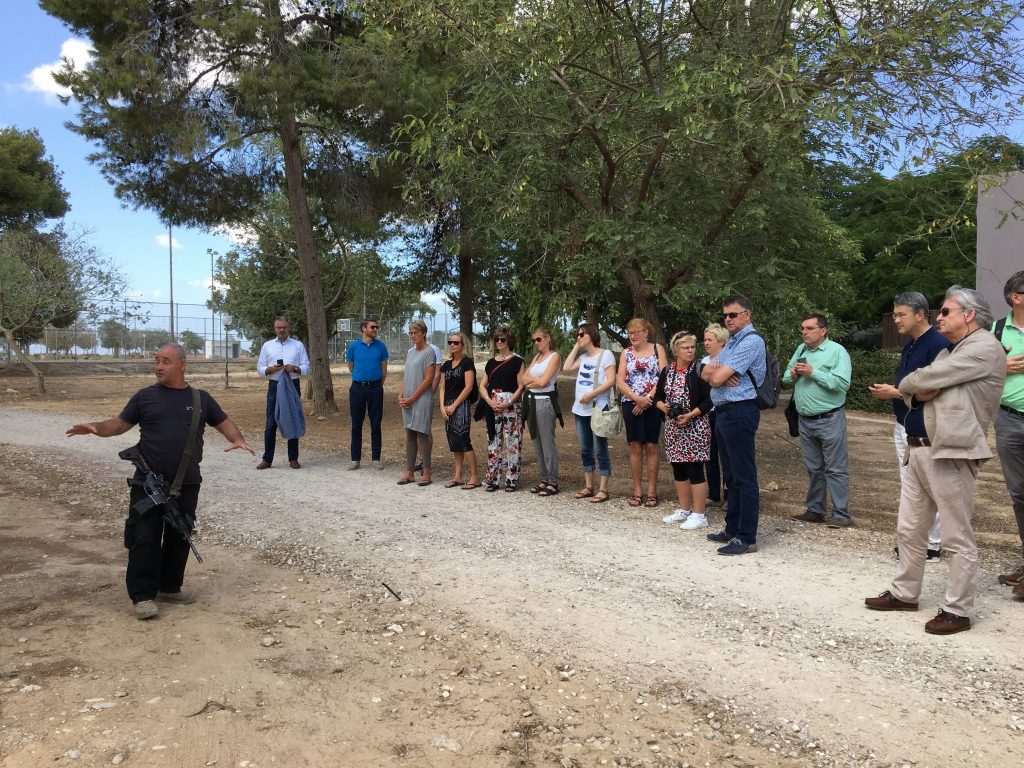
On the 11th of October 2018, the Dutch board of Christians for Israel visited Eshkol to show the solidarity with the citizens of this region.
Our children teach us to react properly on sirens, because this is what they learn at their nursery and elementary schools. They know that it’s better not to panic and also know for sure how many seconds exactly we have to get into the shelter, – says Evgeni Tkachenko. He made aliyah from Ukraine two months ago from Kiev to Ein Hashlosha. His family came to Israel to fulfil the dream of their grandparents since they had a very difficult life in Ukraine and didn’t know how and were not allowed to make aliyah.
They see us exactly as we see them now, Rami – a member of the kibbutz – explains to the board of Christians for Israel, staying near the fence that overlooks the border. You never get used to sirens. We live here because we chose to do so. We don’t have any other place to go and this is where we want to be.
As if greeting Rami’s words with approval, the drimias nod their flowers in the wind…
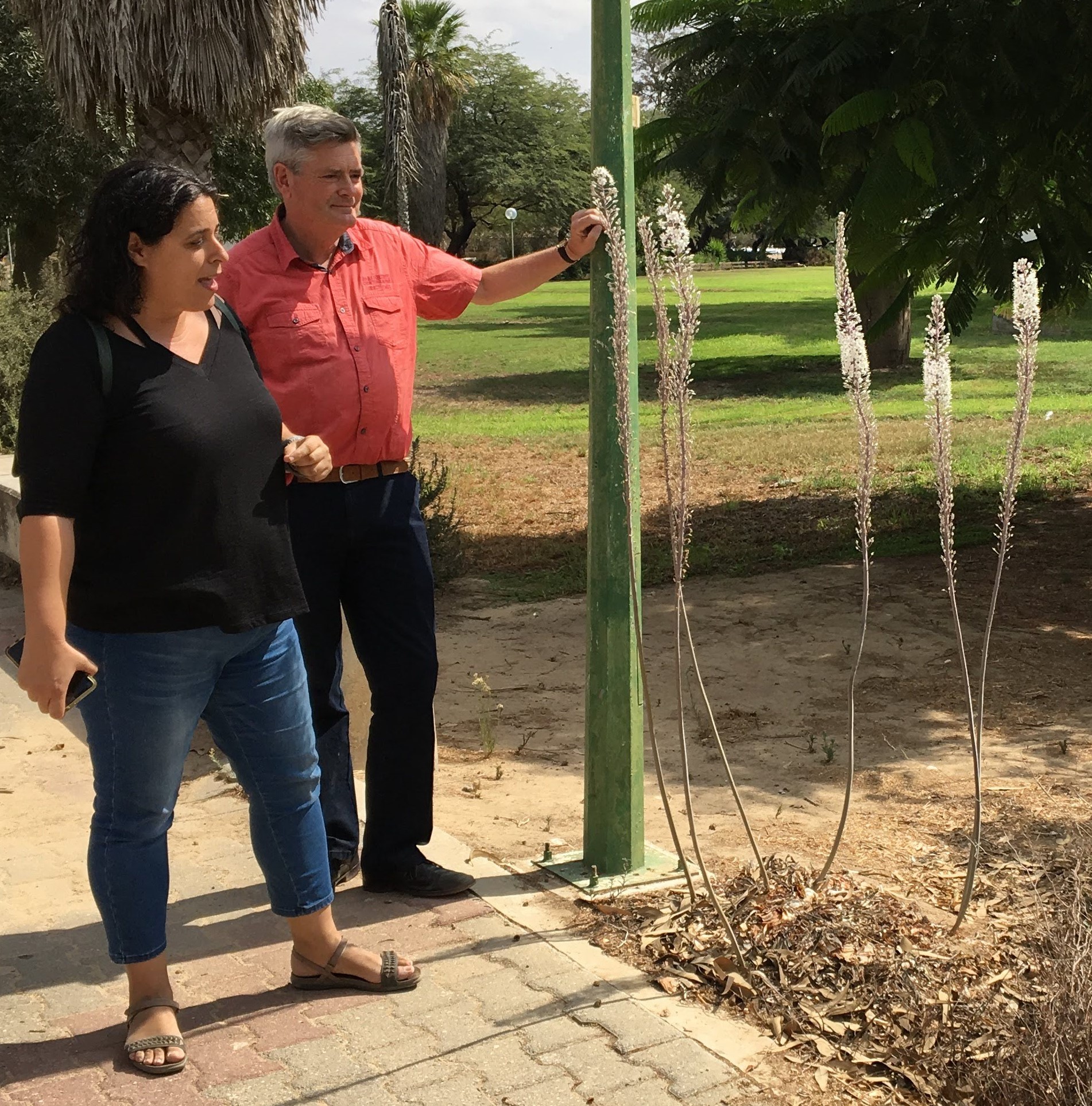
Please support the “First Home in the Homeland” Project. Any amount is welcome!
Assisting a family in the “First Home” program costs € 230 euro / US $ 250 a month.
Support in €
Support in US $
